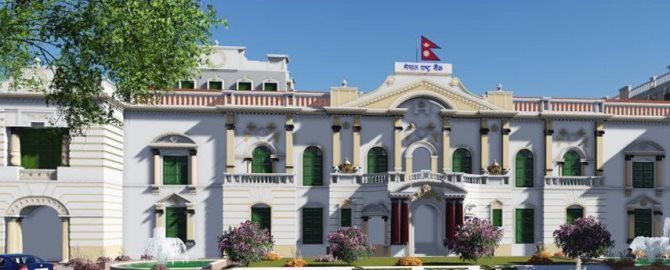
About 90 percent Nepalis expect price level to increase in next three months, according to a survey released by Nepal’s central bank, Nepal Rastra Bank (NRB), on Sunday. Likewise, 94.0 percent of respondents have expected price level to increase in the one year ahead.
A majority of people expect average prices of goods and services to rise by a staggering 11.3 percent over the next year, the Inflation Expectation Survey shows.
Inflation expectations have crucial role in determining the inflation outcomes. Therefore, measuring inflation expectations have been regular task for most of the central banks around the world.
Inflation plays a key role in determining monetary policy stance. Many factors such as economic growth, Indian inflation, exchange rate, oil prices, credit flows and so on affect the inflation in Nepal.
Inflation expectation is also one of the key indicators for future inflation, which has not been observed so far in Nepal.
If people or companies anticipate higher prices, they build these expectations into wage negotiations and contractual price adjustments (such as automatic rent increases).
NRB has also started conducting inflation expectation survey with the release of this survey report. Responses from 482 urban individuals from seven major cities representing all provinces of Nepal have been used for analysis.
This survey was conducted during January–February 2021 using survey based approach.
About 86.9 percent of respondents expect the general price level to increase in three months ahead. About 35.9 percentages of respondents expect that price increase will be higher than the current rate.
Only 2.9 percent of respondents expect that the general price level will decrease. While 20.2 percentages of respondents expects food products price to increase more than current rate, 33.8 percentages of respondents expect nonfood price to increase more that current rate.
About 76.1 percentages of respondents expect housing and real estate price to increase. Female respondents have expected higher inflation rate compared to male respondents. Unemployed respondents have expected higher inflation rate among sector wise employment.
Respondents up to 25 years have expected higher inflation rate compared to other age groups. Respondents from Kathmandu have expected higher inflation rate compared to respondents from other cities.
NRB plans to conduct this type of inflation expectation survey in coming days in a certain interval learning from the experience and feedback, as per the central bank. At present the survey compiles information only from city areas.
This survey however, does not include labor unions, importers, wholesalers, retailers, producers and professional experts and enterprises.






